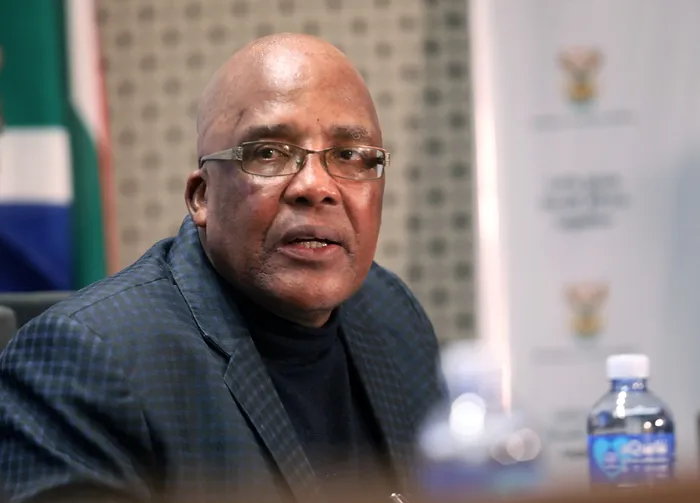Unions hopeful of NHI under Motsoaledi

Minister of Health, Dr Aaron Motsoaledi. Picture: Oupa Mokoena / Independent Newspapers
Health unions have welcomed the reappointment of Dr Aaron Motsoaledi as Minister of Health, saying he was familiar with the challenges facing the ministry and hands-on when it came to problem solving.
The Health and Allied Workers Indaba Trade Union (Haitu) through its general secretary, Lerato Mthunzi, said during his tenure as health minister, Motsoaledi turned the fortunes of the ministry around.
“Dr Motsoaledi is no stranger to the health portfolio and when he was minister, conditions in public hospitals and clinics were far better than they are now. Dr Motsoaledi has a reputation for being hands-on when it comes to solving the problems in the department, and we remember him for being a person who engages all labour unions in health, not just those affiliated to Cosatu.
“The minister was instrumental in the architecture of the NHI Bill and we look forward to the roll-out of NHI in all facilities as soon as possible. The minister has an opportunity to cement his legacy as a champion of healthcare rights and equal access for all, if he prioritises this,“ said Mthunzi on Wednesday.
“Haitu is calling on Dr Motsoaledi to work with us to end austerity in healthcare so we can have more state funding in order to improve service delivery, and ensure that the poorest of the poor are treated with dignity and care. We look forward to working with him and call on him to continue to engage all stakeholders, especially organised labour in his new role.”
The Democratic Nursing Organisation of South Africa (Denosa) called for Motsoaledi to spearhead the speedy implementation of the NHI. Denosa also asked the minister to confront nursing education system issues, in particular the R171 nursing diploma, which is a three-year course that produces general registered nurses.
“Regarding the new nursing curriculum that produces nurses under R171 programme, Denosa hopes the minister will see the limitations the new nursing curriculum has brought about, which makes nursing services inaccessible to communities.
“The new registered nurse is not independent, as they do not have midwifery, psychiatry and community service, meaning they will not be able to help to take care of expectant women and psychiatry patients, if they are the only ones present in their facilities,” said Denosa.
Denose expressed hope for “positive engagements in addressing healthcare issues in general and nursing in particular”, including uniform provision for the nurses in the public sector, the low number of nurses that the country’s universities and colleges produce – Denosa says half the current nursing population will retire in the next 15 years – as well as the issue of “non-absorption of the very few nurses that get produced in the public sector”.
Cape Times